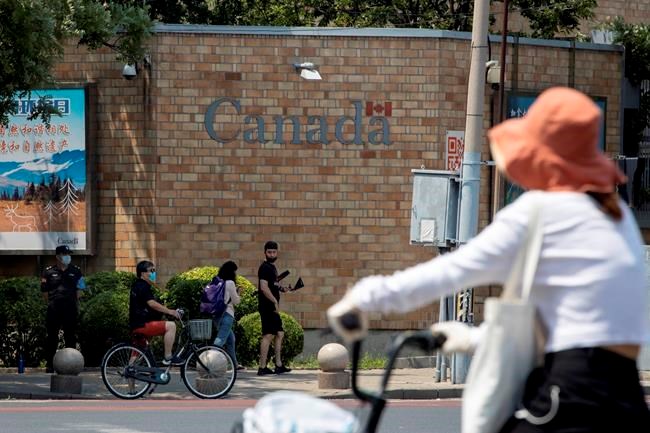BEIJING — Canada's embassy in Beijing says censors have removed its posts about a United Nations report on human rights in Xinjiang from two Chinese social media platforms.
The embassy tweeted that it shared Canada's response to this week's report on Weibo and WeChat, but the posts were taken down.
The report published Wednesday says China's treatment of Muslim minorities in western Xinjiang province may constitute crimes against humanity.
The Canadian Embassy shared screenshots of what appeared to be postings in Chinese on its Weibo and WeChat accounts.
They are word-for-word translations of Foreign Affairs Minister Mélanie Joly's English-language response to the report, saying its findings reflect "credible accounts of grave human rights violations taking place in Xinjiang."
The UN report says "urgent attention" is needed from the international community to address the human rights situation in the province.
It says there are credible reports of torture, arbitrary detention and other ill treatment in Xinjiang, conducted under the guise of China's fight against terrorism and extremism.
China's Foreign Affairs Ministry on Thursday called the report by the Office of the High Commissioner for Human Rights "illegal, null and void," saying it had been orchestrated by the U.S. to contain China.
Spokesman Wang Wenbin said in a regular press briefing conducted in Mandarin that the report was “a patchwork of disinformation."
This report by The Canadian Press was first published Sep. 2, 2022.
— by Nono Shen in Vancouver
---
This story was produced with the financial assistance of the Meta and Canadian Press News Fellowship.
The Canadian Press



